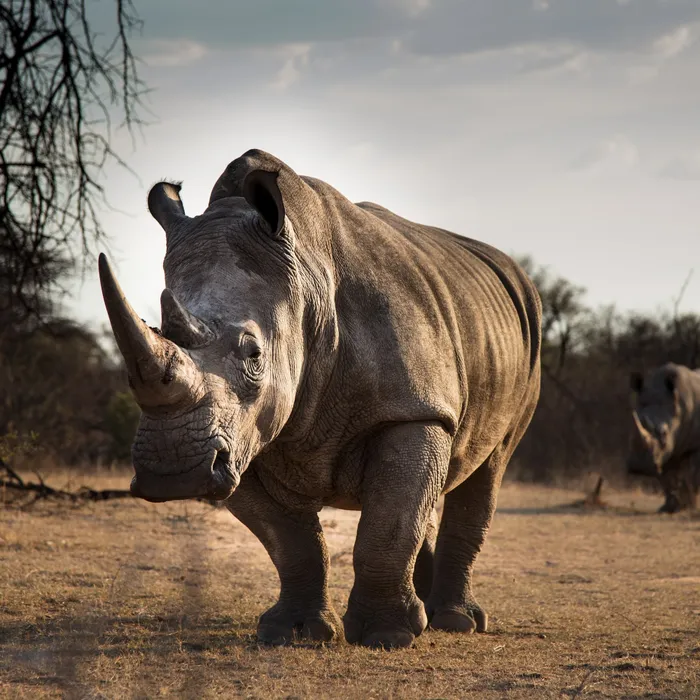Concern over increase in rhino poaching in KZN

Rhino poaching in KZN is on the rise with 143 rhinos having been poached from January to June 2023.
The Department of Forestry, Fisheries and Environment is concerned by the increase in rhino poaching in KwaZulu-Natal. While the rest of the country has seen a decrease in rhino poaching, KZN has had 143 rhinos poached from January to June 2023.
In a statement issued by the department this week, it noted that during the first six months of 2023, 231 rhinos had been killed in South Africa. These figures amount to an 11% decrease (or a decline of 28 animals killed for their horn) compared to the same period last year. Between January 1 and June 30, 2023, poaching trends also continued to show a move away from the Kruger National Park to provincial and private reserves.
“Forty-two rhinos were poached in the Kruger National Park and 143 in KwaZulu-Natal Province from January to June 2023. In total forty-six rhinos killed were in privately-owned nature reserves and 143 in provincially owned reserves,” according to the statement.
The department said the demand for rhino horn remained a constant threat to rhino populations. A collaboration between the law enforcement agencies, including the SAPS (South African Police Services), DPCI (Directorate of Primary Crime Investigation) as well as Green Scorpions, customs officials, the Financial Intelligence Centre (FIC) and the National Prosecuting Authority, remained key in combating rhino poaching.
To implement and strengthen the collaboration between these role players and effectively address the organised nature of rhino poaching and wildlife trafficking – the cabinet’s approval of the National Integrated Strategy to Combat Wildlife Trafficking (NISCWT) was instituted in May this year.
Speaking about NISCWT, Forestry, Fisheries and the Environment Minister, Barbara Creecy said this strategy aimed to break the illicit value chain of wildlife trafficking in South Africa and beyond its borders.
“It represents a commitment by government to direct law enforcement ability and effort and mobilise society support to address the threat wildlife tracking poses to national security and the country’s rich biodiversity. Although currently our focus is rhinos, the strategy also aims to address the illegal trade in, and poaching of, other species that are threatened by trafficking syndicates, like abalone” said Ms Creecy.
She added that in the first six months of this year, their work with both the SAPS and the NPA had led to the conviction of 31 offenders. In Skukuza, one suspect was found guilty of killing three rhino and possession of unlawful arms and ammunition. He was sentenced to an effective 32 years in prison, said Ms Creecy.
She added that in another matter, three accused, found driving in Kruger National Park, had five rhino horns hidden in the vehicle, a hunting rifle with a silencer, ammunition and knives.
Ms Creecy said they were convicted for the killing of three rhinos in the park, possession of unlawful firearms and ammunition, possession of dangerous weapons and trespassing. Two of the accused were sentenced to 34 years imprisonment, while the third was sentenced to 39 years imprisonment, she said.
“(Monday) July 31, was World Ranger Day and it is important that we honour the bravery and dedication of the men and women who run our ranger services and who are on the front line of the battle against wildlife poaching,” said Ms Creecy.
“The role of rangers in supporting the prosecution and sentencing of those arrested for wildlife crimes committed in the Kruger cannot be underestimated. There is strong collaboration between the SAPS forensic teams and SANParks ECI (Enviornmental and Corporate Investigations) when attending crime scenes. This is to ensure the collection of vital evidence to link suspects to the crime scenes. It’s also done to ensure minimum contamination of the crime scene.”
During a meeting held earlier this year with the Director of Public Prosecutions (DPP)’s Environmental Working Group, Ms Creecy said they discussed the challenge relating to the opposing of bail because rhino poaching is not listed as a Scheduled Offence. Research is being conducted to propose legislative amendments to address this challenge, she added.
“Unfortunately, rhino poachers have continued to target the Hluhluwe/iMfolozi game reserve in KwaZulu-Natal. This is where Ezemvelo KZN Wildlife, supported by the Department and iSimangaliso Wetland Park, continues to implement several measures to combat rhino poaching.
“Among these has been the establishment of a Tactical Operations Joint Control Centre, which now facilitates the SAPS deployments to Hluhluwe/iMfolozi Park (HiP). The department made available R40 million for the repair and replacement of the boundary fence around the Hluhluwe/iMfolozi game reserve which is regularly breached and through which wild animals can escape to nearby communities,” said Ms Creecy.
The National Prosecuting Authority has a designated prosecutor to facilitate rhino cases in KZN and cases have been prioritised and identified to be expedited through the court processes.
Members of the public can report any suspicious activities around wildlife to its environmental crime hotline, which is 0800 205 005 or the SAPS number 10111.
Related Topics: